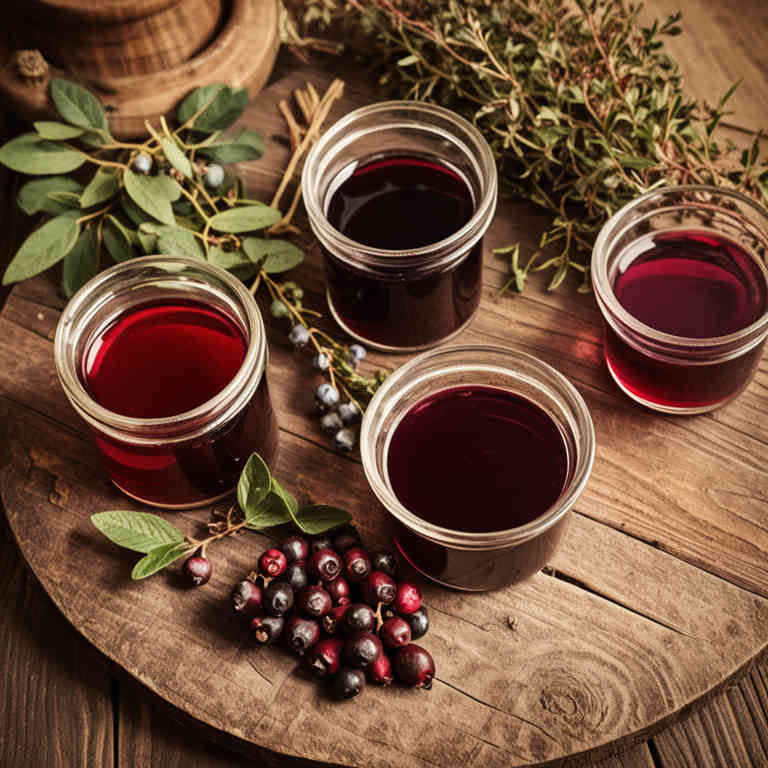Vaccinium macrocarpon syrup for medicinal use

Vaccinium macrocarpon syrup is a traditional herbal preparation made from the berries of the American cranberry plant.
It is commonly used in herbalism to support urinary tract health due to its high concentration of antioxidants and proanthocyanidins. This syrup is often recommended for preventing and treating urinary tract infections by promoting bladder health and reducing bacterial adhesion. It may also be used to alleviate symptoms of inflammation and support overall immune function.
Its tart flavor is typically balanced with sweeteners in its preparation for better palatability.
Uses
Vaccinium macrocarpon syrup has been used to treat digestive ailments and respiratory conditions for centuries.
Historically, it was valued by Indigenous peoples of North America for its medicinal properties, particularly for soothing sore throats and easing coughs. In traditional medicine, the syrup was also used to address symptoms of colds, flu, and even as a remedy for digestive discomfort. Modern applications include its use as a natural cough suppressant and for its potential antioxidant benefits.
Today, it is still found in some herbal remedies and is appreciated for its historical significance and mild therapeutic effects.
Benefits
Vaccinium macrocarpon syrup has health benefits such as supporting immune function, aiding digestion, and providing antioxidant properties.
It is often used to help alleviate symptoms of respiratory infections due to its antiviral and anti-inflammatory effects. The syrup may also assist in reducing inflammation and promoting overall wellness. Its natural ingredients make it a popular choice for those seeking herbal remedies for common ailments.
Additionally, it can contribute to boosting energy levels and improving overall vitality.
Constituents
Vaccinium macrocarpon syrup active constituents include anthocyanins, flavonoids, tannins, and organic acids.
These compounds contribute to its antioxidant and anti-inflammatory properties. Anthocyanins are responsible for the deep red color and provide protective effects against oxidative stress. Flavonoids support cardiovascular health and may enhance immune function.
Tannins have astringent properties that can aid in digestive health and reduce inflammation.
Preparation
To make Vaccinium macrocarpon syrup, first gather 2 cups of fresh or frozen cranberries, 1 cup of water, and 1 cup of honey or maple syrup.
Wash the cranberries and place them in a saucepan with the water, then bring to a boil. Reduce the heat and let it simmer for about 10 minutes until the cranberries soften and release their juice. Strain the mixture through a fine mesh strainer or cheesecloth to remove the pulp and seeds.
Finally, stir in the honey or maple syrup and let the mixture cool before transferring it to a sterilized jar for storage.
Side Effects
Vaccinium macrocarpon syrup may lead to gastrointestinal discomfort, including nausea, vomiting, and diarrhea, due to its high acidity and active compounds.
It may also cause allergic reactions in individuals sensitive to the plant, manifesting as rash, itching, or swelling. Long-term use could potentially affect blood sugar levels, making it unsuitable for diabetics without medical supervision. Overconsumption may lead to liver toxicity, especially in individuals with pre-existing liver conditions.
It is important to consult a healthcare provider before using this preparation, especially for prolonged periods or in combination with other medications.